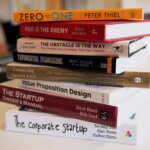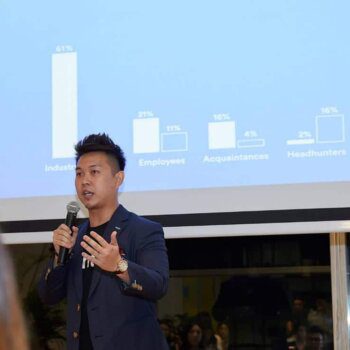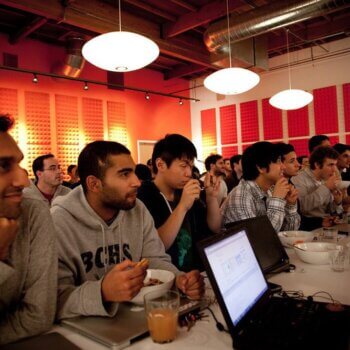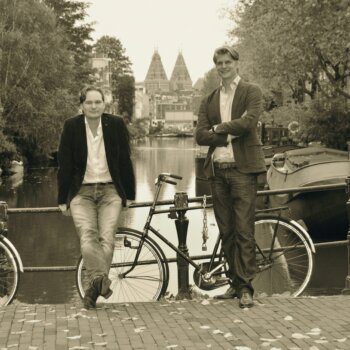(Women on Top in Tech is a series about Women Founders, CEOs, and Leaders in technology. It aims to amplify and bring to the fore diversity in leadership in technology.)
Nidhi is CEO, Quonscious Technologies. The organisation creates products and platforms to assist with the conscious evolution of humans and businesses. Their current product UPVRD aims at augmenting human intelligence using AI – supporting the accelerated growth of the youth, business professionals and entrepreneurs all over the world.
With 20 years in Asia’s largest IT organisation, of which several years were spent in Business Development, Sales and Consulting, Large Deals and Innovation across fortune 500 companies, Nidhi, an INSEAD Alumnus, moved to People Transformation for the last 3 years. Eventually pursuing this as an entrepreneur.
For her efforts in providing substantial business returns through people interventions at scale, she has won over 25 International Awards, including being named one of the ‘30 World-Changing Women in Conscious Business’, ‘Exceptional Women of Excellence, 2018’, ‘International Executive of the Year’, ‘Business Maverick of the Year’, ‘Product Innovation of the Year’, among many others.
What makes you do what you do?
Passion and Purpose.
Passion for bringing the best out of myself and others, with the purpose of making the world a better place.
With my current role as the CEO of Quonscious Technologies, the thought that people’s lives could be better with access to the right knowledge, actions and experiences excites me. In a world of never-ending tasks, for people to find that space where something is better-taken care of, now that they have the tools to.
Overall, how can I make the world, I am in now, a better place? That purpose drives what I take on and how I build myself (passion, skills, and will) to execute it.
How did you rise in the industry you are in?
By working and understanding different aspects of it – the technology, management, advisory, business, and now people management.
It helped to continuously coach myself to bring myself fully to the task at hand – look for the best outcome for the consumer and the stakeholders, and sometimes those underrepresented, express my truth unabashedly – respect authority and yet not be undermined by it, choose to work with purposeful teams/cultures, compartmentalise work and strength, and lastly, integrate life and purpose.
Why did you take on this role/start this startup especially since this is perhaps a stretch or challenge for you (or viewed as one since you are not the usual leadership demographics)?
The challenge of “never-been-done’ excites me. Even if it is the normal, I will look to see if it can be done better, add scale, in the least amount of time, collaborate with more, market it better, make it more enriching an experience for the consumer, involve them proactively, co-create better, nudge more stakeholders in, add more social connect and purpose to the teams involved, push the boundaries of possibilities more – both for myself and others.
This role was challenging because everyone said it could not be done. Intuitively I knew not only that it could be done but also why it needed to be done. Once committed, and until the pilot was done, proven and successful, I would not have stopped for the world. Every part of me believes in the program and is invested in it. Once done, it is the role of the culture of the organisation, and the management to take it forward.
Growth is where others fear to go. Most fear is about the loss of respect, loss of position or loss of pay. Once work is guided by purpose, fulfillment and how you want to grow, leave a legacy, make a difference – the above lose their charm on you. Growth becomes a natural outcome of making the right choice.
Do you have a mentor that you look up to in your industries or did you look for one or how did that work?
Self-aware managers are generally good mentors. Though, a culture of competition, under-appreciation, insecurities and checklist tasking does tend to take that away from them sometimes.
In the industry then, it is hard to find, especially for women in India, where social interactions outside work are less prominent or possible. Outside the Industry – it is a “mentors network” – previous managers or clients, my INSEAD network and Art of Living network.
Mostly though, look up to my Guru, parents, spouse (and child) for guidance during tough decisions. They know me well and look beyond – outside of short term and material comforts alone – to the legacy we want to leave and advise accordingly.
It is funny that some days my 8-year-old is my best mentor. His clarity and purity of thought in certain situations is profound.
How did you make a match if you did, and how did you end up being mentored by him/her?
By aligning core values – people who are passionate about wanting the same thing, find it easy to relate to each other.
I reached out to people in various networks that inspired me for different strengths I wanted to inculcate. Most of them saw something they wanted to support in me too and have been gracious in time and advice.
I am always grateful for them for that and I am paying it forward by mentoring others.
Now as a leader how do you spot, develop, keep, grow and support your talent?
Look for good, genuine, passionate, courageous and self-driven leaders.
Develop them with trust, and a firm and gentle hand, explore and experiment with tasks. Support them through meritocracy, transparency and most importantly, mentoring and coaching, done right.
First, you guide them. When you have done that well, mentor them and yet, let them guide you.
Do you consciously or unconsciously support diversity and why?
Yes, other than support, create diversity-friendly leaders and cultures. Diversity is an “everyday task” best done by integrating it into the culture of the organisation other than being another initiative. It is also an “everyone’s task” best influenced through inspiration and exemplification from its leaders.
In meetings, let everyone’s voice be heard. Encourage those who refute your idea or challenge your thought. Break hierarchy when required to support meritocracy. Involve different ages, gender, unrelated to the topic perspectives within boards and teams – with equal respect.
This is definitely tougher than normal since you end up giving more clarifications, more delays to work as people get on board slowly, different ages bring different insecurities about hosting questions and the fate of their intervention, respect to authority wanes or is subtly fought for – and yet, over time, it is most beneficial as belongingness, ownership, holistic ideation, innovative cultures – become the norm. Keeping consistent as management with your commitment to it is key as is setting the precedent at the top.
What is your take on what it takes to be a great leader in your industry and as a general rule of thumb?
Developing self through focused attention to it – continuous learning, meditation, and creative pursuits – over a period of time. Expressing your experience or expertise genuinely and boldly. Bringing your best self – as you know it – to work and relationships.
Blending passion with dispassion and compassion, when it is needed.
Strengthening your inner voice and letting it guide you – even sometimes, over the voice of well-meaning others.
Advice for others?
Make it your first job to discover and learn – what makes you, you. Pick up apps, workshops, mentors that help you become better every day – in all aspects – work, relationships, creative, speaking, money, purpose, friends and family.
And, do not let your work define your life purpose. Let your life purpose help define what work you want to do.
If you’d like to get in touch with Nidhi, please feel free to reach out to her at [email protected]
This article was co-written with Norway Dolan.

Norway is a recent graduate from Merrimack College, north of Boston, USA, where she graduated with a double major in Human Development & Human Services and Women’s and Gender Studies, with a minor in education. She spent the past four months as a cub reporter for Women on Top in Tech — researching about women’s leadership in the tech field and specific barriers that women face in rising to the top.
Her passion for gender equality aligned well with Women on Top in Tech’s mission and has been able to contribute to research done for women leadership research while working remotely. She has recently begun her first professional job working as a Family Service Provider for a community based, behavioral health care organization in Massachusetts.





























